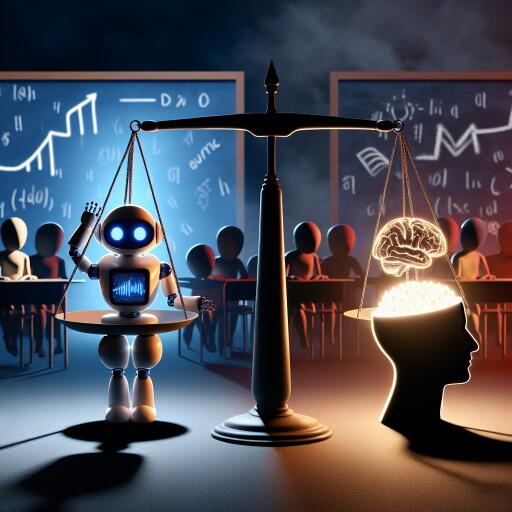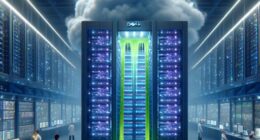The Dark Side of AI in Education: Are Students Losing Their Critical Thinking Skills?
In the digital age, artificial intelligence (AI) has significantly permeated the educational sector, holding promises of transforming traditional pedagogical methods. This integration of AI offers numerous advantages, from tailored learning experiences to streamlined grading processes. Yet, as the footprint of AI within educational domains expands, a growing concern has surfaced regarding its potential detrimental effect on the foundational skills of critical thinking and intellectual engagement among students.
The principal critique relates to the inclination towards fostering a learning environment that prioritizes rote recollection over critical engagement. AI-driven tools, designed to aid in research, writing, and complex problem-solving, could potentially make students reliant on technological assists. This reliance risks skipping over the intricate process of analytical thinking and deep understanding, crucial for intellectual development and problem-solving prowess.
Another vital aspect of this debate centers on the issues of authenticity and originality in student work. With the capabilities of AI to produce comprehensive essays, solve mathematical problems, and conduct research, there exists a looming threat of students submitting work that lacks genuineness, potentially overlooking the essence of academic pursuit. This situation not only challenges academic integrity but also hampers the opportunity for students to cultivate their investigative and analytical faculties.
The conversation around AI in education also touches upon access and equity. While AI tools promise to democratize learning by offering customized educational experiences, they also necessitate having the requisite technologies and internet access, potentially widening the gap between different socio-economic groups. Students from underprivileged backgrounds may find themselves at a disadvantage in an education system increasingly gravitating towards AI-enabled methodologies.
Critical reflections on AI in education also extend to the potential of AI systems to perpetuate and even exacerbate existing biases. As these systems process extensive datasets to generate predictions and insights, they might inadvertently mirror societal biases, thus affecting fairness and equality in educational outcomes, particularly for marginalized communities.
To navigate these challenges effectively, it’s imperative for stakeholders in education — from educators and policymakers to tech developers — to exercise caution and critical evaluation. While AI undeniably holds the potential to enrich educational experiences, its role should be seen as complementary to, rather than replacing, the human element in teaching. The focus should remain on leveraging AI technologies to augment rather than diminish the role of educators in fostering an environment that encourages creativity, critical thinking, and intellectual exploration.
The ultimate objective of educational institutions should be to nurture learners who are not only knowledgeable but also capable of thinking independently, solving complex problems, and contributing meaningarily to society. By achieving a harmonious balance between the innovative capabilities of AI and the irreplaceable value of human-centric teaching approaches, we can aspire to cultivate an educational landscape that preserves the essence of learning while embracing the possibilities of the future.










